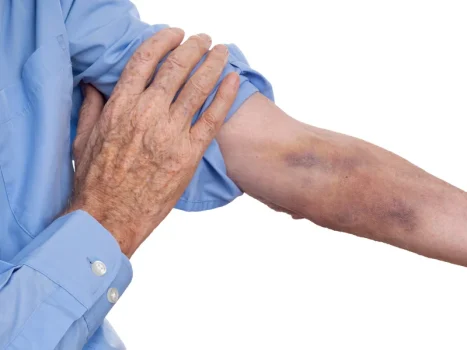
It is no secret that the genes we inherit from our parents determine simple physical traits such as hair color and height. That comes down to a mixture of certain genes, which include a randomness component related to the allele—or gene variant—we inherit. But when it comes to more complex human features, the connection to our genes is less clear. The impact of genes on behavior like alcohol use or even sexual orientation has long been the subject of scientific debate.

Factors influencing AUD
Mental illnesses, such as depression and schizophrenia, are more common in people with a family history of these disorders. People with mental illness have a higher risk of turning to substance is alcoholism inherited abuse as a way of coping. Mental disorders can be hereditary (and environmental), which partially illuminates the complex link between genetics and addiction.
Genetic Predisposition For AUD
- The more genetic factors you have, the higher your risk may be of having AUD.
- However, environmental and social factors can increase or reduce this genetic risk.
While the D2 dopamine receptor gene did not have the effect expected on alcoholism, the study contributed to moving forward genetic research. “We know now that it was only a first step of a very long road of complex genetics,” said Renato Polimanti, a colleague of Gelernter at the Yale School of Medicine. In contrast to Angier’s conclusion that AUD is decided by the environment, scientists have since found multiple genetic players.
Conditions

By staying informed, seeking alcohol treatment when necessary, and leveraging resources from institutions like the NIAAA, individuals can chart a path toward recovery and resilience. Peer pressure is also an essential factor, especially with adolescents. If an adolescent’s friends drink heavily, they are more likely to drink to conform. In addition, religious background and culture may also play a role in a person’s decision-making. There are gene variations that could predispose a person to mental illnesses like depression and schizophrenia. People with mental illness are more prone to turn to alcohol as a coping mechanism.

A genetic predisposition or genetic susceptibility refers to an increased likelihood that you’ll develop a disease based on your genetic makeup. As of this moment, however, there does not appear to be a single ”alcoholic gene.” Our understanding of how genetics affect alcoholism is still developing. And to make things even more complicated, some research suggests your relationship with alcohol might actually affect your genes. In other words, psychology and home environment likely https://ecosoberhouse.com/ have a significant impact on how alcoholism is passed down through families. Although it can be hard to separate the different causes from each other, there is solid evidence that genes play a role.
- While genetics can play a significant role in your overall AUD risk assessment, it isn’t the only factor that can elevate your chances of developing AUD.
- Therefore, genes alone do not determine whether someone will develop AUD.
- The risk of alcoholism is considered just as much environmental, social, and behavioral as it is genetic and heritable.
Is There an Alcohol Addiction Gene?

There are some genes that can influence your risk, and there is strong evidence that alcohol addiction can run in families. However, there are many other factors that can determine if you become an alcoholic. Neuroscience offers a window into the brain’s workings, shedding light on why some individuals might be more prone to alcohol misuse. The genetics of alcohol use disorder isn’t just about the genes we inherit but also about how they interact with our brain’s structures and functions.
- That doesn’t mean you’ll absolutely develop AUD if you have a family member living with the condition.
- The world around you also can play a significant role in opening a door that leads to problematic substance use, notes Dr. Anand.
- That comes down to a mixture of certain genes, which include a randomness component related to the allele—or gene variant—we inherit.
- Genetics may play a role in alcohol use disorder (AUD), but other factors might also contribute to the development of this condition.
- The National Institute on Drug Abuse highlights a potential overlap between genes related to alcoholism and opioid misuse.
- Both ALDH2 and ADH1B are genes that are involved in how alcohol is metabolized in the body.
- In the 170 years since the term “alcoholism” was first classified as a behavior, problematic drinking has been a widely studied condition to settle the nature versus nurture argument.
- Alcohol is highly addictive and often used to self-medicate in the face of environmental and social triggers, mental health concerns and other stressors.
Take our short alcohol quiz to learn where you fall on the drinking spectrum and if you might benefit from quitting or cutting back on alcohol. Join 40,000+ People Who Receive Our Newsletter Get valuable resources on addiction, recovery, wellness, and our treatments delivered directly to your inbox. Instead, the awareness should prod you to protect yourself from the damage that alcohol could bring to your life and health. They would experience nausea, flushing, and rapid heartbeat even with moderate amounts of liquor. The unpleasant symptoms of drinking “protect” them from consuming too much alcohol.
